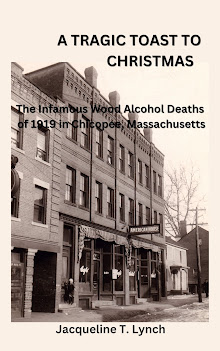Tuesday, November 14, 2017
Norman Corwin - Boston, Greenfield, and Springfield, Massachusetts
Norman Corwin, was of the finest writers and producers of
the Golden Age of Radio, as well as being a screenwriter and teacher, had New
England roots, and some of his earliest writing was for western Massachusetts
newspapers.
During the 1930s and 1940s, he used the medium of radio drama
and comedy to address social issues in profound ways. His writing was vivid, lean, and
imaginative. Here on my Another Old Movie Blog, we covered his
emotional We
Hold These Truths, broadcast the week after Pearl Harbor in December
1941 with a cast of stars dramatizing the nuances of the Bill of Rights. It was
the most famous radio event of its day, and he won a Peabody Award.
Corwin was born in 1910 in Boston, the son of a
printer. The family moved to Winthrop
and he graduated from Winthrop High School.
At only seventeen, he was hired as a cub reporter in Greenfield, Massachusetts, for the Greenfield Recorder, reporting on the
courts and writing movie reviews, and made western Mass. his home for several
years.
He next worked down river for the Springfield Republican, where he was the editor for radio news, his
column called "Radiosyncracies,"
written under a pseudonym. It was during
his stint in Springfield, Mass. that Corwin became involved in radio
broadcasting. In the early thirties he
worked for WBZ and WBZA in Springfield and in Boston as a commentator and
reader of poetry. He left New England in
1935 for work first in Cincinnati, and then New York City where he remained
with CBS until 1949.
On a Note of Triumph, a celebration of victory in Europe,
was broadcast May 8, 1945 with actors and commentators broadcasting from both New York City
and Los Angeles. Corwin wrote Fourteen August, which was similarly broadcast
on V-J Day. He earned a Distinguished
Achievement Award from Radio Life magazine.
He eventually left radio, disgusted by the blacklist and
being a victim of that notorious era, though he was not a communist; his work,
particularly where it relates to freedom of speech, brought his liberalism into
question. He also wrote the two episodes
of Hollywood Strikes Back, the actors’,
producers’, and writers’ response to the persecution of the Hollywood Ten. Have a look at my Another Old Movie Blog on Thursday for a post on that program.
Corwin moved on to television, the theatre, film, and
teaching writing, and is the subject of a documentary on his life and work: A Note of Triumph: The Golden Age of Norman
Corwin (2005). He was inducted into
the Radio Hall of Fame in 1993. Norman
Corwin died in 2011 at the age of 101.
Posted by
Jacqueline T. Lynch
at
12:56 PM
0
comments
![]()
Labels: 20th Century, entertainment, Massachusetts
Subscribe to:
Comments (Atom)









